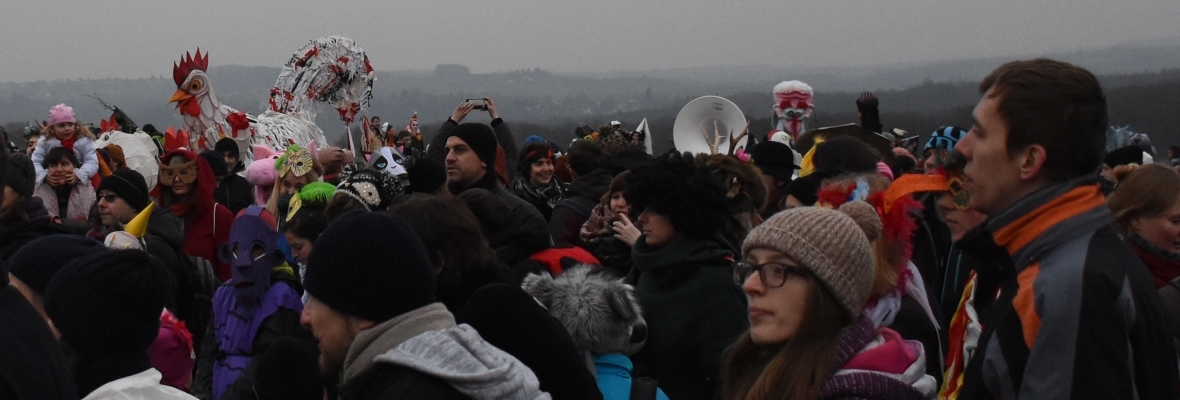
Call For Applications - Praemium Academiae PH.D. Position 2025 – 2028
Call For Applications - Praemium Academiae PH.D. Position 2025 – 2028
Fri Jun 07 12:51:31 CEST 2024

Research on Environmental Sustainability and on the Use of Resources in Central European Households
We are pleased to announce a Ph.D. position available in the project funded by the Czech Academy of Sciences.
Location: Institute of Ethnology of the Czech Academy of Sciences, Prague, Czechia
Deadline for applications: 12 July 2024
Position: Ph.D., fully funded for 4 years
The Institute of Ethnology of the Czech Academy of Sciences, Prague, Czechia, invites applications for a fully funded, four-year PhD position. Along with RESOURCE Project team members, the Ph.D. candidate will conduct their research at the Department of Ecological Anthropology, Institute of Ethnology of the Czech Academy of Sciences (CAS). The CAS is a research-only institution, so the student will simultaneously be based at and receive their Ph.D. degree from Charles University. (If the student can propose another European university from where they would like to receive their PhD degree, we are open to discussing other arrangements.)
The successful candidate will be a member of a research team within the RESOURCE Project led by Dr. Petr Jehlička in cooperation with Dr. Daniel Sosna and Dr. Maike Melles and funded by the Praemium Academiae grant from the Czech Academy of Sciences.
The Ph.D. student will conduct research activities in Czechia, looking at household practices concerning water consumption and food waste generation, emphasising a better understanding of frugality and resource conservation. This research will lead to one thesis and two academic articles produced during the RESOURCE Project.
Position information at a glance
Start date: 1 January 2025
Duration: 4 years
FTE: full-time position
Workplace: Prague
Gross salary: 33,000 CZK (approximately 1300 EUR) per month for four years, starting January 2025. Following enrolment in the doctoral programme in spring 2025, the candidate will begin a Ph.D. study in October 2025. If the student receives their Ph.D. degree through Charles University, they will be paid an additional 10,500 CZK (approximately 420 EUR) per month as the state stipend for three years, starting October 2025.
Your qualifications
- Master’s degree in (environmental) anthropology, human geography, sociology or related discipline.
- Keen interest in the Project’s key concepts such as household, sustainable consumption, frugality, and thrift.
- Proficiency in the Czech language and excellent oral and written English skills.
- Solid knowledge of, and experience with, a range of research methods.
- Capacity to work both independently and collaboratively.
- Writing skills manifested in a high-quality Master’s dissertation.
- Capacity to present at international conferences and to contribute to communications aimed at the general public (website, social media).
We offer
- Opportunities to work within an innovative research project.
- Funding for fieldwork, publishing and conference attendance.
- Training seminars and workshops to further professional development.
- Institutional affiliation with the Institute of Ethnology of the Czech Academy of Sciences and the Faculty of Social Sciences of Charles University.
- Friendly international and supportive working environment in the city centre of Prague.
Application process
To apply, candidates are required to submit the following as a single PDF document comprising:
- Cover letter (max. 1 page)
- CV (max. 2 pages)
- Writing sample in English, published or unpublished
- Copies of university degrees and official transcripts
- The names and contact details of two potential referees
In the second stage, shortlisted candidates will be asked to provide a short research proposal (max. two pages) and discuss it at the interview. A detailed description of the RESOURCE Project will be provided to the shortlisted candidates.
The deadline for the application is 12 July 2024, 5 pm Central European Time. Please email the pdf file to office@eu.cas.cz under the subject ‘RESOURCE Project Ph.D.’
Please do not hesitate to contact Dr. Petr Jehlička (jehlicka@eu.cas.cz) for any further information.
If no suitable candidates are found, the vacancy will be reopened.
About the Project
The RESOURCE Project aims to meet two key objectives. Drawing on extensive empirical work in Czechia and the Netherlands on household food waste production and water consumption, the first key objective is to produce important insights into households’ frugal resource use. In this sense, the Project has an agenda-setting ambition in relation to global academic knowledge production as it seeks to inform and shape key social scientific debates and theorisations on the sustainability of everyday household practices of the use of resources. The findings concerning the diverse degrees of household resource efficiency in the two social contexts provide a basis for the Project’s second key objective. It is the understanding of the dynamic of international scholarly communication and its underlying material and discursive power structures that determine the uneven adoption of knowledge on resource use as either from specific social contexts as ‘universal’ or ‘marginal’ and peripheral’. Ultimately, the Project will seek to propose ways of altering this hierarchy of knowledge.
About the Institution
The Institute of Ethnology pursues both basic and applied research. The Institute currently hosts two ERC projects. The Department of Ecological Anthropology, where the project is based, draws on a vibrant and evolving form of scholarship nested in a broad array of intellectual traditions and theoretical approaches including science studies, economic anthropology, subaltern studies, more-than-human geography, human-animal studies and environmental humanities. This scholarship examines how socio-cultural worlds emerge through the ongoing interaction between humans, geographical features, animals, plants, microbiomes, technologies, materials and other nonhumans.

